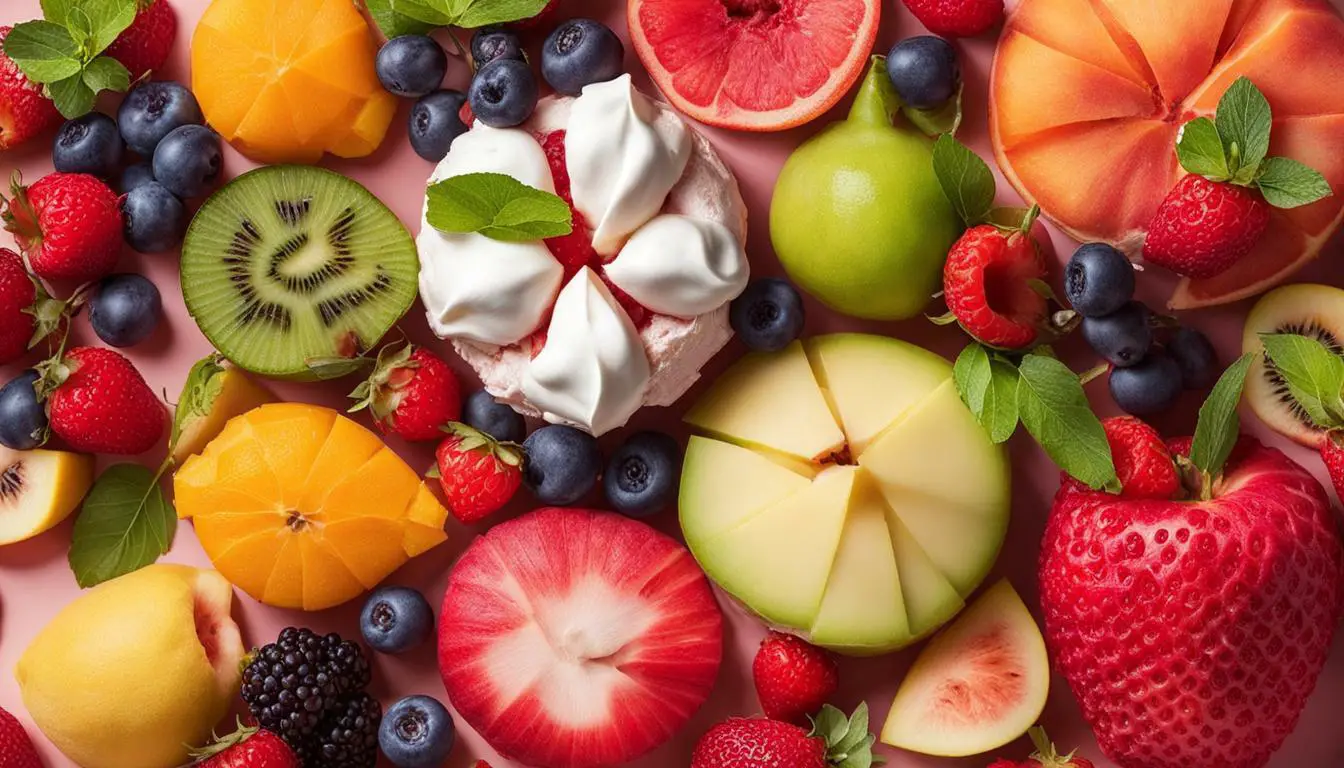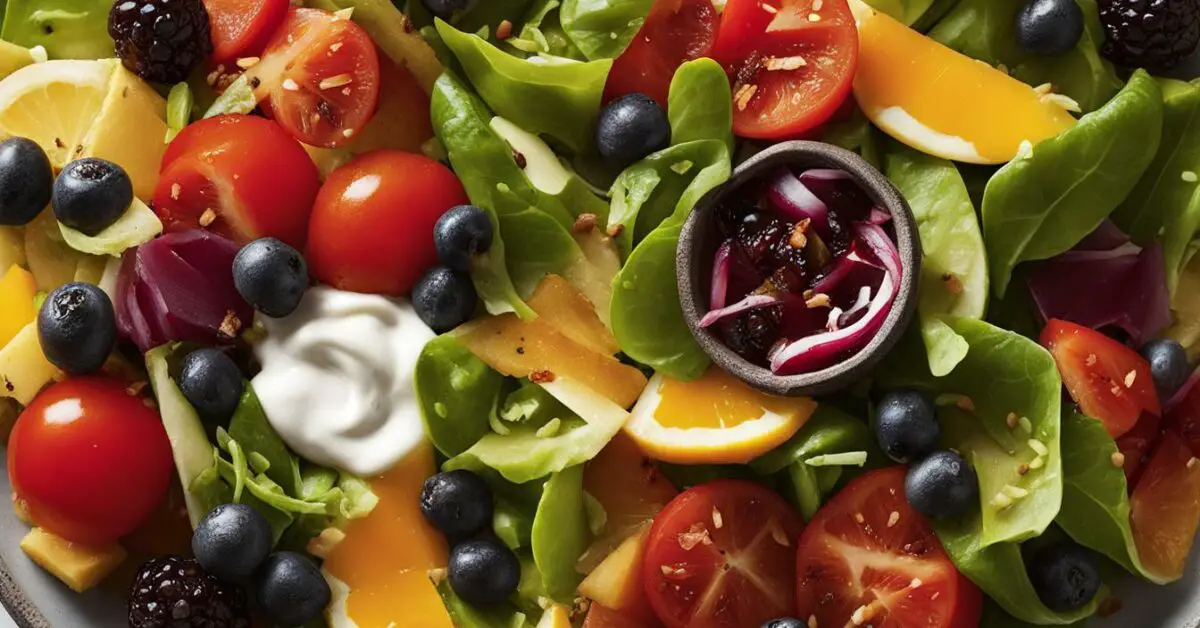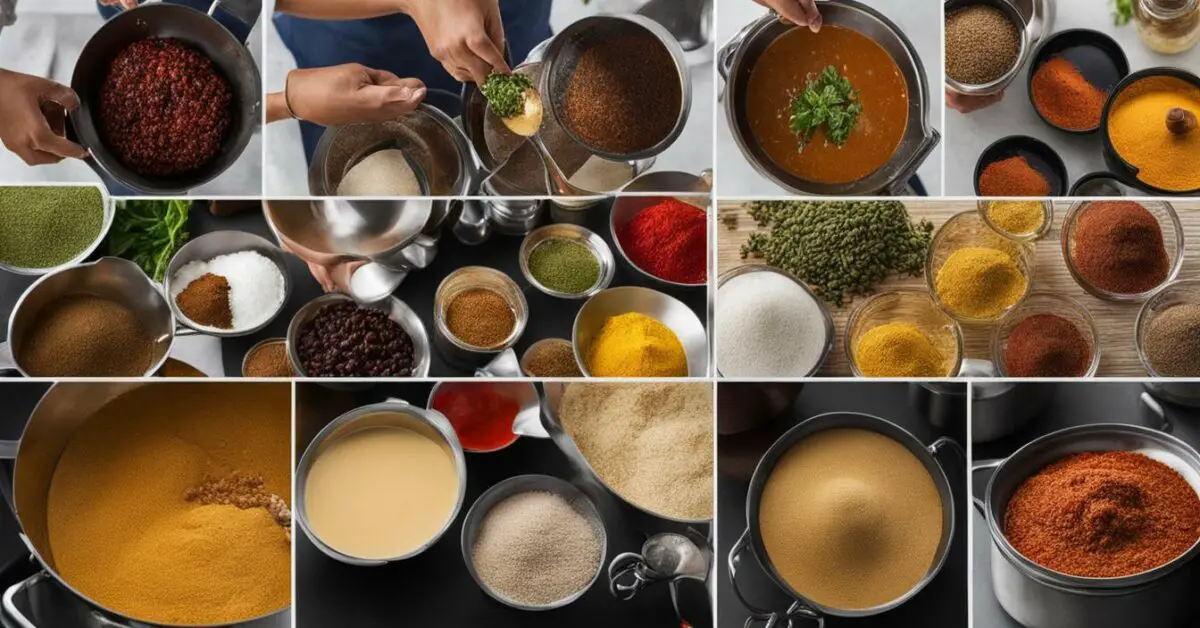
This post may contain affiliate links. Please read my disclosure for more information.
If you’re looking for alternatives to vinegar in your pavlova recipe, there are several excellent options to consider. When it comes to substituting vinegar in pavlova, you have a variety of choices that can enhance the flavor and texture of your dessert. Rice vinegar, apple cider vinegar, lemon juice, white wine vinegar, and champagne vinegar are all viable substitutes that can be used in a 1:1 ratio to vinegar in pavlova recipes.
Rice Vinegar: A Sweet and Mild Substitute for Vinegar in Pavlova
Rice vinegar is a popular choice as a substitute for vinegar in pavlova due to its sweet and mild flavor. This versatile ingredient adds a unique twist to your pavlova, enhancing both the texture and taste. With its subtle tang and delicate sweetness, rice vinegar complements the other ingredients in the pavlova recipe, creating a delightful balance.
Why Choose Rice Vinegar?
- Delicate Flavor: Rice vinegar offers a mild flavor that doesn’t overpower the other elements in your pavlova. It adds a hint of tanginess without being too acidic, allowing the natural sweetness of the pavlova to shine through.
- Smooth Texture: The gentle acidity in rice vinegar helps to stabilize the pavlova while maintaining its light and airy texture. It contributes to the perfect balance of softness on the inside and crispiness on the outside.
- Versatility: Rice vinegar is a versatile ingredient that can be used in various other dishes, such as dressings, marinades, and stir-fries. So, if you have any leftovers, you can easily incorporate them into your future culinary creations.
To use rice vinegar as a substitute for vinegar in pavlova, simply replace the vinegar in your recipe with an equal amount of rice vinegar. This 1:1 ratio ensures that the pavlova retains its intended texture and flavor. Whether you’re making a classic pavlova or experimenting with different flavors, rice vinegar is an ideal choice that will elevate your dessert to new heights.
So, the next time you find yourself without vinegar for your pavlova, consider reaching for rice vinegar instead. Its sweet and mild characteristics make it a perfect substitute that will add a delightful twist to your dessert. Give it a try and savor the delectable flavors of a pavlova made with rice vinegar!
Apple Cider Vinegar, Lemon Juice, White Wine Vinegar, and Champagne Vinegar
In addition to rice vinegar, there are other substitutes for vinegar in pavlova that can add a unique twist to your dessert. Apple cider vinegar, with its bold flavor, can lend a tangy and slightly fruity taste to your pavlova. It pairs especially well with fruit toppings, enhancing the overall flavor profile. Adding lemon juice to your pavlova not only imparts a refreshing citrusy tang but also helps in achieving a lighter texture. The acidity of lemon juice reacts with the other ingredients, resulting in a delicate and fluffy pavlova.
If you prefer a milder taste, white wine vinegar is an excellent substitute. It shares a similar flavor profile to vinegar but with a subtle hint of fruitiness. This vinegar adds depth to the pavlova without overpowering the other flavors. For a touch of elegance, consider using champagne vinegar. Its mild and delicate taste complements the sweetness of the pavlova, creating a sophisticated dessert experience.
When using these substitutes in your pavlova recipe, it’s important to maintain a 1:1 ratio with the original vinegar measurement. This ensures that the desired texture and taste of the pavlova are preserved. Experimenting with different substitutes can open up a world of possibilities, allowing you to tailor your pavlova to your personal preferences and create a dessert that leaves a lasting impression.
Using Substitutes in Pavlova Recipes
When using substitutes for vinegar in pavlova recipes, it’s important to maintain the proper balance of flavors. Each alternative option brings its own unique taste profile, so finding the right substitute depends on your personal preference and desired outcome. Here are some tips for incorporating these substitutes into your pavlova recipe:
- Rice Vinegar: Known for its sweet and mild flavor, rice vinegar can add a subtle tang to your pavlova. Use it in a 1:1 ratio to vinegar in your recipe, or adjust the amount to suit your taste.
- Apple Cider Vinegar: If you’re looking for a bolder flavor, apple cider vinegar is a great choice. Its slightly fruity and acidic taste can add depth to your pavlova. Start with the same 1:1 ratio, but you can experiment with less for a milder impact.
- Lemon Juice: For a citrusy twist, lemon juice works wonders as a vinegar substitute. Its tangy and fresh flavor can brighten up your pavlova. Again, use a 1:1 ratio or adjust to your liking.
- White Wine Vinegar: With a similar taste profile to vinegar, white wine vinegar can replicate the acidity and tanginess required for a pavlova. Use it in the same quantity as vinegar in your recipe.
- Champagne Vinegar: If you prefer a milder alternative, champagne vinegar is a great option. Its delicate flavor can complement the other ingredients in your pavlova recipe. Use it in the same 1:1 ratio as vinegar.
Remember, the key to successfully substituting vinegar in pavlova is to maintain the proper balance of flavors. Start with the recommended ratios and adjust as needed based on your taste preferences. Experimenting with different substitutes can help you create a pavlova that suits your unique palate.
Conclusion
With the variety of substitutes available, you can confidently create a delicious pavlova even without traditional vinegar. Whether you choose rice vinegar for its sweet and mild flavor or apple cider vinegar for its bold taste, there are plenty of options to suit your preference. If you prefer a citrusy tang, lemon juice is a great choice, while white wine vinegar offers a similar taste profile. For those who prefer a milder flavor, champagne vinegar is an excellent substitute.
When using these substitutes, it’s important to remember that they can be used in a 1:1 ratio to vinegar in pavlova recipes. This ensures that the texture and taste of your pavlova remain intact, allowing you to enjoy a delectable dessert without compromising on quality. Experiment with different alternatives to find the perfect substitute that suits your taste preferences.
So, the next time you find yourself without vinegar for your pavlova recipe, don’t fret. These substitutes provide an array of flavors and characteristics that can enhance the overall taste of your pavlova. Get creative in the kitchen and embrace the versatility of using substitutes for vinegar in pavlova. Your taste buds will thank you!
FAQ
What are some substitutes for vinegar in pavlova?
Rice vinegar, apple cider vinegar, lemon juice, white wine vinegar, and champagne vinegar can all be used as replacements for vinegar in pavlova.
What is the characteristic taste of rice vinegar?
Rice vinegar has a sweet and mild flavor, which can contribute to achieving the perfect texture and taste in pavlova.
What are the alternatives to vinegar in pavlova?
Besides rice vinegar, alternatives such as apple cider vinegar, lemon juice, white wine vinegar, and champagne vinegar can also be used as substitutes.
How can I use these substitutes in pavlova recipes?
These substitutes can be used in a 1:1 ratio to vinegar in pavlova recipes, ensuring that the texture and taste of the pavlova remain intact.


